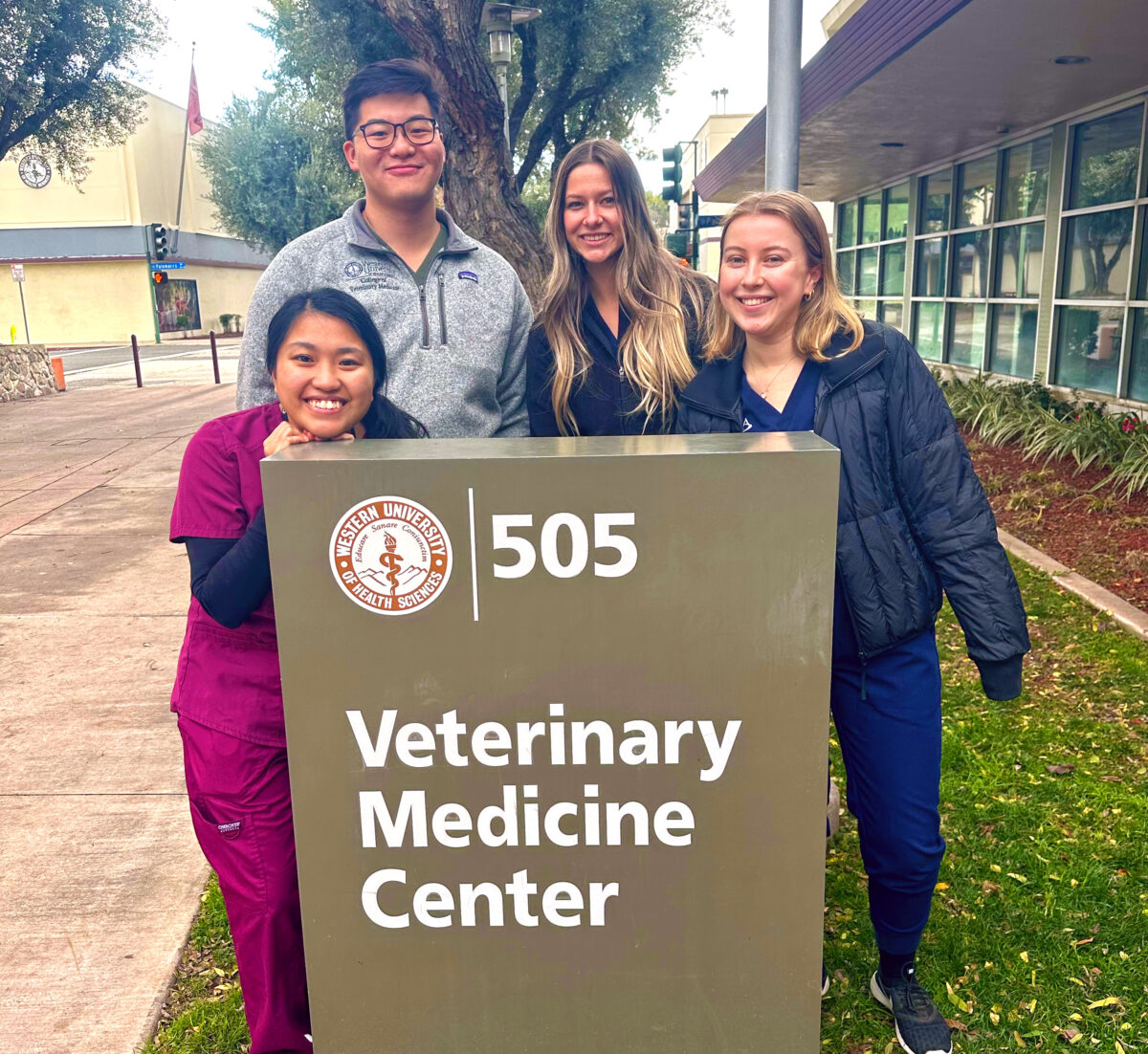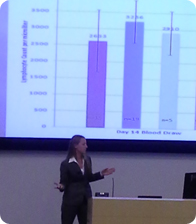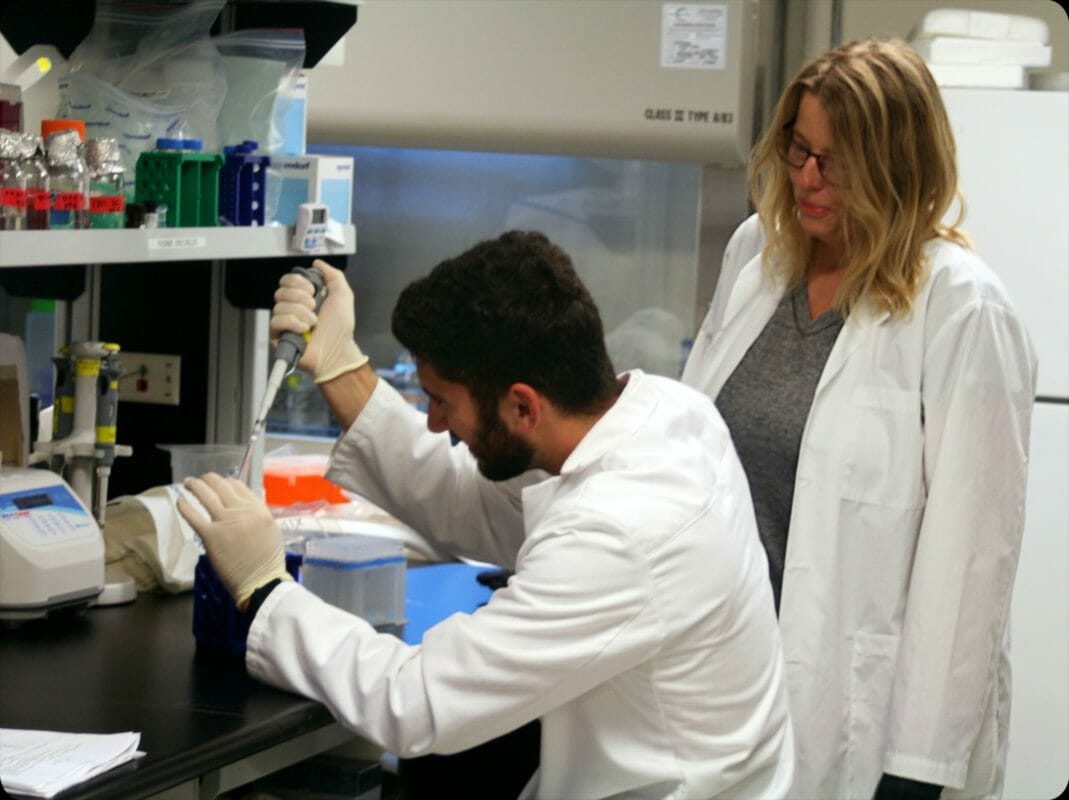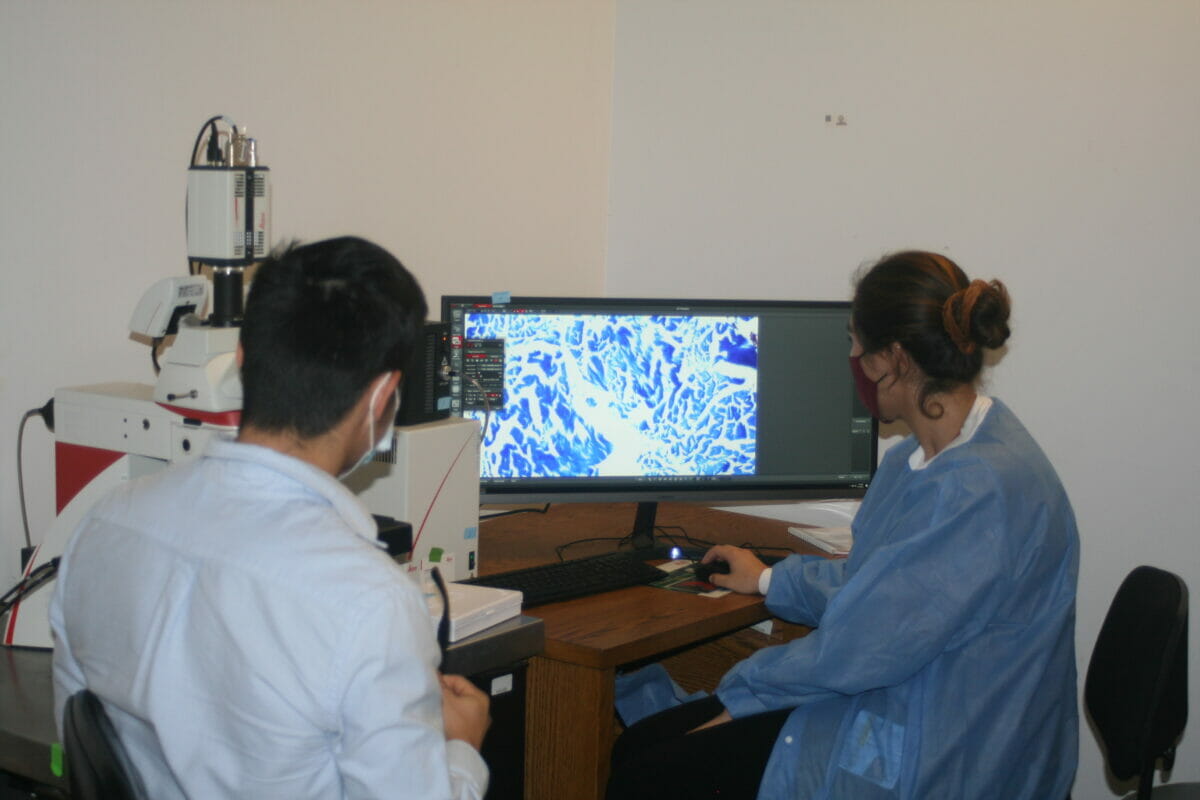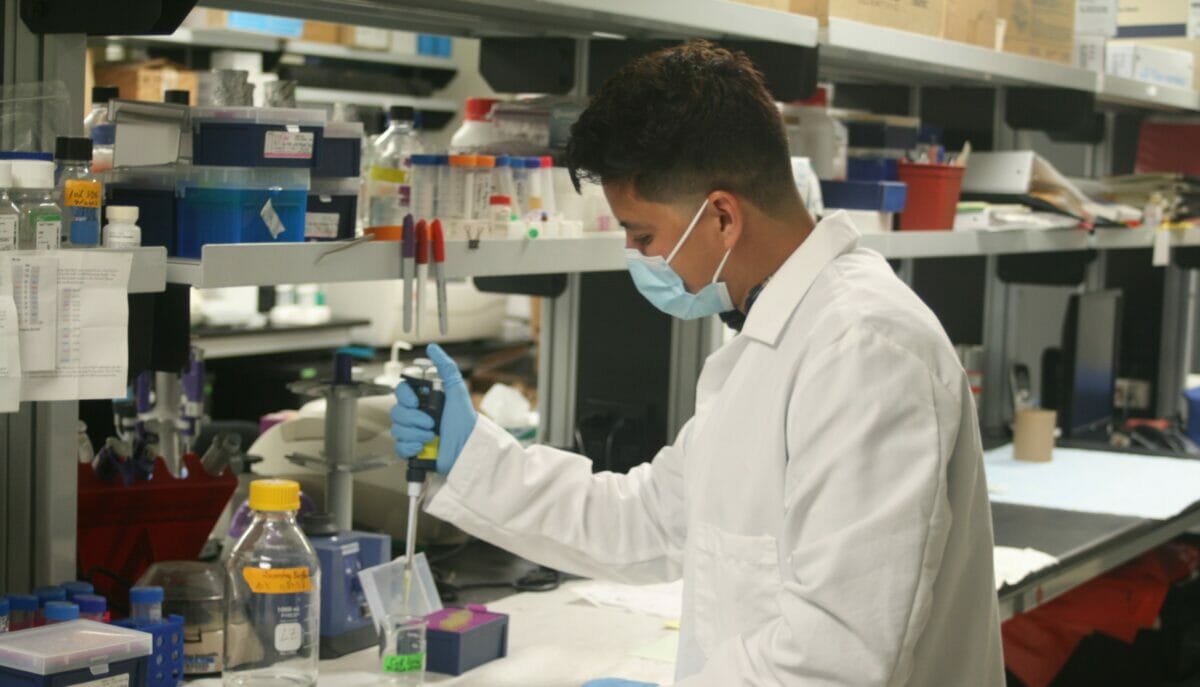
College of Veterinary Medicine: Student Research Involvement
Student Involvement in Research
As developing WesternU CVM scientists, students are encouraged to engage in research activities. Opportunities are available each year of the curriculum for students to strengthen the basic research learning objectives received through core courses. These additional opportunities include apprenticeship in general laboratory maintenance, participation in programs such as the WesternU CVM Veterinary Summer Research Program (WesternU CVM VSRP) (Year 1 and 2) in the summer, Student Technology and Research Symposium (STRS), College Research Day (all years), presentation at national scientific meetings (all years), Junior Presentations (Year 3), Research Rotation (Year 3 and 4), and Independent Research with Thesis. Faculty members within CVM (as well as other Colleges on campus) are available to students as research project coordinators and mentors to help develop the drive toward scientific inquiry in all veterinary graduates.
Western University of Health Sciences and the College of Veterinary Medicine support the concepts of E. L. Boyer in Scholarship Reconsidered: Priorities of the Professoriate (The Carnegie Foundation for the Advancement of Teaching, Princeton, NJ). In this examination of the intellectual environment of universities, research encompasses the scholarship of discovery, the scholarship of integration, the scholarship of application and the scholarship of teaching. Learning objectives related to research are fully integrated in our curriculum, providing ample exposure to critical appraisal of scientific literature, laboratory animal medicine, research ethics, data analysis and dissemination of scientific findings.
Please note that this is non exhaustive list, for more information contact CVM Research Office : cvmresearch@westernu.edu
CVM 7090 THIRD YEAR STUDENT PRESENTATION (1 CREDIT) – SEMESTER 5 & 6
Each student is required to make an oral presentation of a case, series of cases, research project, or a herd/flock problem with which they have been involved during years one through three of the curriculum. Students, in preparing their case presentations, carry out a thorough literature search and evaluate the strengths of relevant published materials, as it may apply to their case(s). Presentations are evaluated by faculty and students are encouraged to be both critical and analytical in their presentations.
CVM 7564 RESEARCH ROTATION (OPTIONAL) (4 CREDITS) – SEMESTER 5 & 8
This rotation provides students with hands-on research experience. The student will learn principles of experimental design and good laboratory practices. Early in the rotation, the student will develop a specific hypothesis and design a protocol to test the hypothesis. The student will maintain a laboratory notebook, documenting the procedures and assays that are performed on a daily basis, as well as define and explain the scientific questions that each assay is addressing and the underlying mechanisms by which the assays operate. Depending upon the rotation site, the student may participate in laboratory meetings, seminars, and/or journal clubs. At the end of the rotation, the student will prepare a one page summary of their research project, which will be written in abstract form that contains both a title and an author(s) section, with the body of the abstract addressing the background, objectives, methods, results, and conclusions of the project. Additionally, a four to five-page technical summary of the research project will be prepared. This document should be written in manuscript format, including an abstract (same as above), introduction, methods, results, and conclusions/discussion sections.
CVM 8095 INDEPENDENT RESEARCH WITH THESIS (OPTIONAL) (2-8 CREDITS) – SEMESTER 3&8
The goal of this course is to improve the scholarly writing and scientific presentation skills of students. These skills are especially relevant to students considering further clinical (internship or residency) or research (MS or PhD) training after graduation. This course is applicable to students who have previously completed a research rotation (CVM 7564), independent study (8090) or been engaged in scholarly activities during their clinical rotations or during summer programs. The course is designed to allow final preparation of the scholarly writing (article submitted for publication or thesis), preparation of an abstract, and public defense. Students may elect to enroll in this course during Years 2, 3 or 4, and must complete the course prior to graduation. Repeatable to a maximum of 8 credits. Year 4 students are limited to a total of 8 combined credits for concurrent enrollment in CVM 8090 and/or CVM 8095. Prior permission of the Dean’s Office is required to repeat this course. Credit awarded for this course does not count toward the total number of credit hours required for the DVM degree.
 The Laboratory Research Student Scholar Program provides opportunities for First and Second Year CVM students to gain hands-on experience in laboratory-based research. Students that participate in this program (considered Student Research Scholars) receive a stipend, and benefit from a flexible schedule to spend 7-8 hours per week (flexible schedule, 60 hours / 8 weeks) in supervised research.
The Laboratory Research Student Scholar Program provides opportunities for First and Second Year CVM students to gain hands-on experience in laboratory-based research. Students that participate in this program (considered Student Research Scholars) receive a stipend, and benefit from a flexible schedule to spend 7-8 hours per week (flexible schedule, 60 hours / 8 weeks) in supervised research.
Introductory Laboratory Research Student Scholar Program: Student Research Scholars will be trained in general laboratory maintenance by the CVM research staff, and will be exposed to the research methodology used by researchers in the college. No prior experience is required and Student Research Scholars can be enrolled for up to 12 months. This program provides a good opportunity for students to explore and prepare for our CVM Veterinary Research Scholar Program during the summer.
Advanced Laboratory Research Student Scholar Program: students must have previous laboratory experience, and must demonstrate competent understanding of the introductory research principles and methodologies. Student participating in this program will work on a research project under direct supervision from a faculty mentor, for up to 4 blocks in Fall and Spring. This experience is especially relevant to previous CVM Veterinary Research students needing additional data to complete their summer projects.
For further information regarding the program and application process:
* Applications accepted between January 1, and May 1 – Funds must be used by July 31 of the same year
This award is designed to encourage students’ involvement in research and offset the cost of such involvement for research mentors. This award provides up to $2,000 toward the research project of a First or Second Year veterinary student mentored by a CVM faculty. This application must be submitted by the supporting faculty mentor.
This mechanism is designed to cover only project related research expenses, such as consumables and reagents. 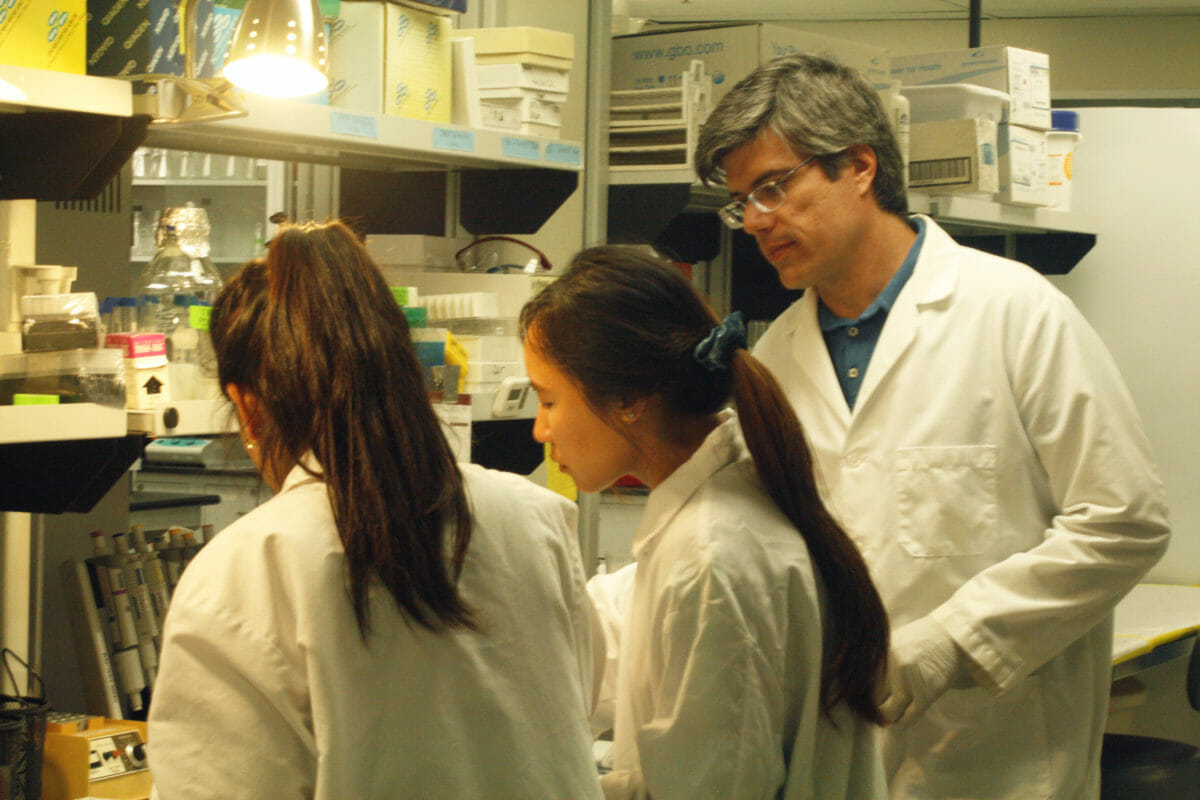 Students participating in these projects may also apply for the Advanced Laboratory Research Student Scholars Program to receive stipends during the academic year. Funded students are expected to present a poster at the Veterinary Scholars Symposium (VSS) at the end of the Veterinary Summer Research Program (VSRP). Please view the call below to view further details regarding the scope of research, eligible expenses, and how to apply. Students and faculty must meet the following criteria for eligibility:
Students participating in these projects may also apply for the Advanced Laboratory Research Student Scholars Program to receive stipends during the academic year. Funded students are expected to present a poster at the Veterinary Scholars Symposium (VSS) at the end of the Veterinary Summer Research Program (VSRP). Please view the call below to view further details regarding the scope of research, eligible expenses, and how to apply. Students and faculty must meet the following criteria for eligibility:
- Faculty: All full-time faculty in the College of Veterinary Medicine are eligible to submit up to one application per faculty.
- Students: This program is open to full-time, first and second year CVM students in good academic standing. Student agrees to participate in the Veterinary Summer Research Program (VSRP), at minimum, as a part-time student research scholar (240-hour commitment) and present a poster of their research at the Veterinary Scholars Symposium (VSS) at the end of the program.
CVM Research Day provides a venue for students currently enrolled in the DVM program (Year 1-4), and CVM Research Trainees to present their research in podium scientific presentations. Students and Trainees are able to exchange ideas, share their knowledge, present their research to faculty, staff and students from all colleges on campus, improve their presentation skills, and earn awards. The program ends with a presentation by a keynote speaker. A call for abstracts is sent prior to each event.
Students and Trainees interested presenting (podium or poster) can view the Call for Abstracts here.
View past programs:
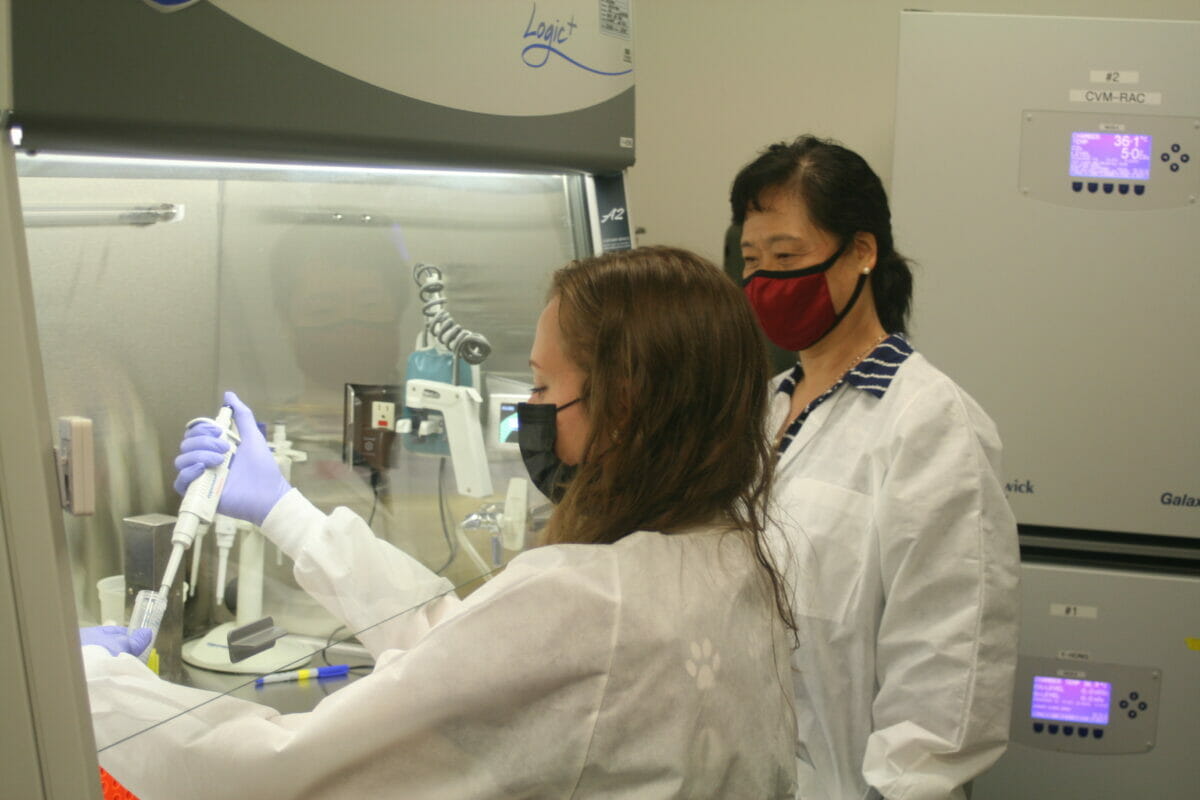
Other Opportunities
